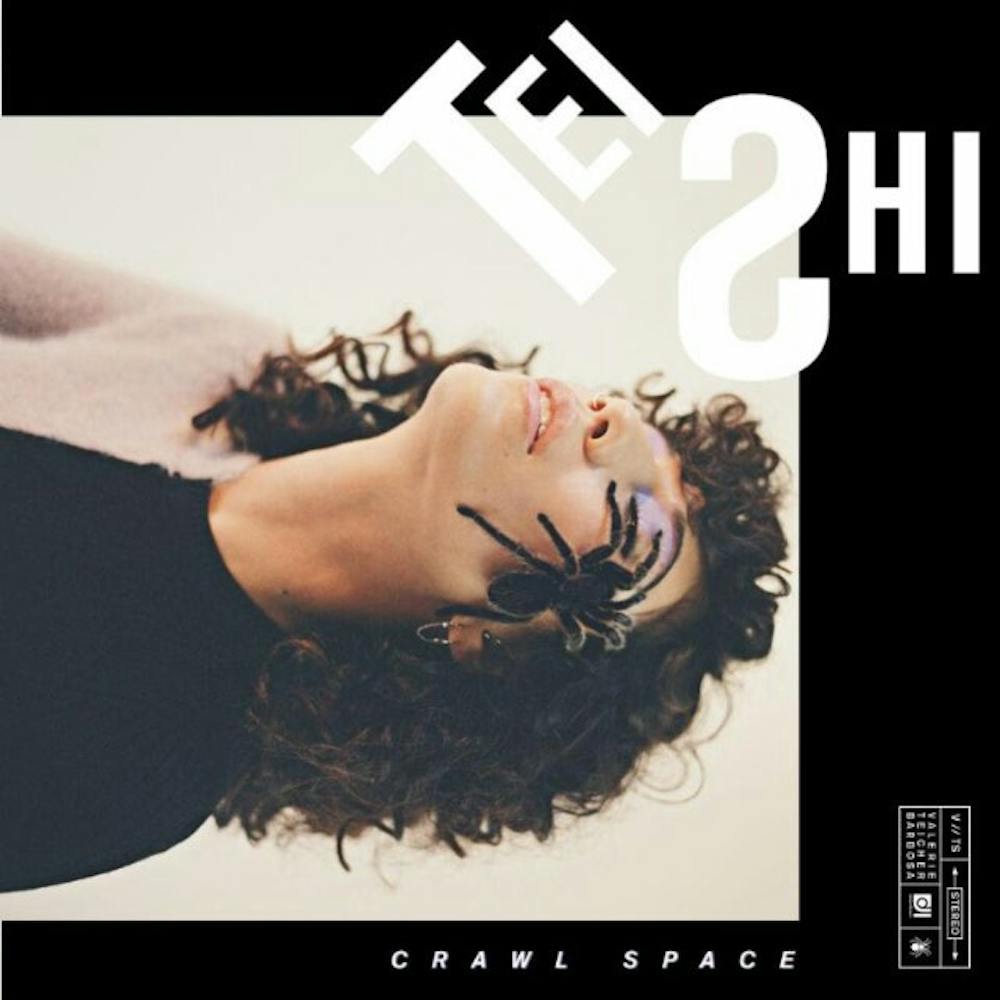As is instantly obvious from the cover, Tei Shi’s debut album “Crawl Space” is a meta-project of facing fears — a tarantula is pictured crawling on Tei Shi’s face as her eyes roll back euphorically. The album name originates from her biggest childhood phobia — the dark — and her struggle with insomnia. Deciding to confront her fear, Tei Shi — known off-stage as Valerie Teicher — endured the pitch black of a crawl space in her childhood home, which acts as a motif throughout the album.
Records styled after personal experiences have potential to explore both identity and nostalgia. Other recent examples in the realm of personal projects include “Blonde” by Frank Ocean and “Process” by Sampha. There is no surprise both albums received high ratings and appraisal — a project’s depth allows listeners to reflect on memory-provoking lyrics and production. “Crawl Space” is destined to follow the same pattern of success.
“Crawl Space” is an impressive evolution in the genre of Tei Shi’s self-descriptive “mermaid music,” an allusion to the dangerously enchanting music of mythological sirens. Artists such as Grimes, FKA Twigs and Melody’s Echo Chamber arguably all fall under this category and influenced Tei Shi’s latest work. The legacy of pop predecessor Prince is also present.
The previous sound of Tei Shi’s releases has been generally minimalistic, a reflection of her discomforted hesitancy to become an artist. However, tracks on “Crawl Space” — such as “Keep Running” and “Justify” — are bold, eccentric and empowering of female sexuality.
“Keep Running” is the lead single of the album and powerfully presents the struggle of fear versus transcendence. The track is a hypnotic synth lullaby with heavy drum hits describing the fight with time — “Every time I look over my shoulder / I’m getting older / I’m getting older / Time is so sad / Tie me to it.”
“Creep” transitions the weighty pace into an eyes-closed, hip-swaying, sultry daydream. The track is Tei Shi’s testament to welcoming her sexuality embodied in her musical creations. The slow lull of the song is emphasized by drawn out, hazy voice loops — “Breathe, I breathe, I breathe / Under the water seeps, it seeps, it seeps.” “Baby” is also a laid back, soft track that floats the listener into a void of dreamy guitar riffs, similar to those of Tame Impala, where the beginning and end of sound is incomprehensible.
“How Far” navigates trying to change a partner in a relationship, ultimately leading to the crumble then the destruction of the love — “It pleases you to say you’re sorry when you’re not / It’s a dangerous slip of the tongue / If it pleases you to see me struggling, I will.”
“Say You Do,” “Justify” and “Lift Me” are the most 80s-sounding tracks on the album due to funky production and vocal approach similar to that of Prince, especially in the falsetto of “Justify,” the most seductive track on “Crawl Space.” Janet Jackson influences are also evident in “Say You Do.”
Meaningfully placed into the album are tape recordings from Tei Shi’s childhood, titled in lowercase letters. An example is the interlude “bad singer” where young Valerie ironically says, “I’m a bad singer / I can’t do anything well,” contrasting her lyrics with incredible vocals.
As closure to the album, “Sleepy” is a track of transcendence and a victory over the insomnia Tei Shi fought as a child. More extensively, the track represents her transcendence past judgements from others and herself that weighed her down in the past — “Untie me / I’m all tangled up in the strings I knit / I’ll die / Trying to find my way out of their stubborn grip.”





